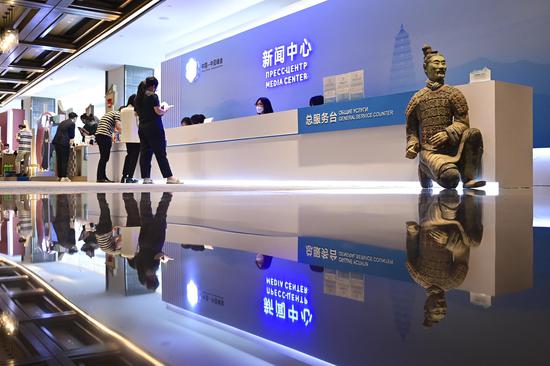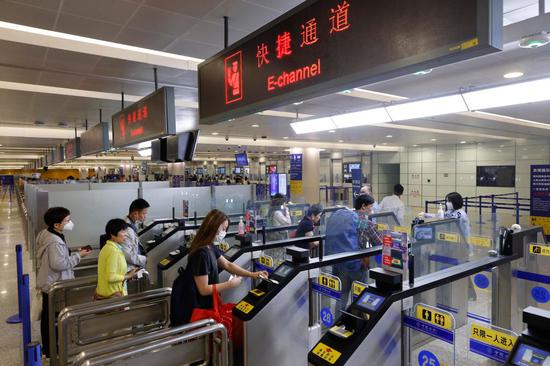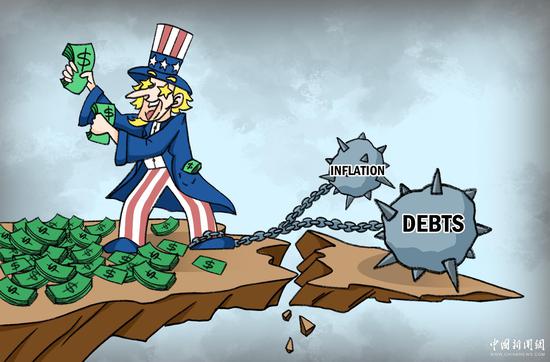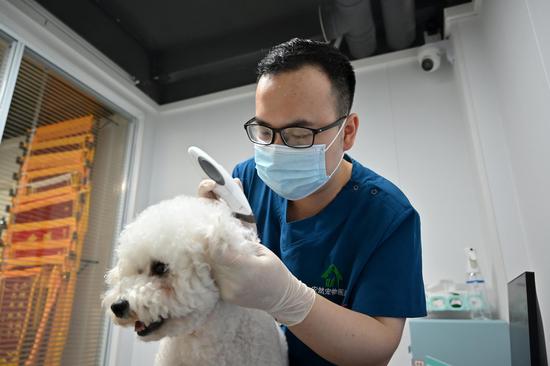
The National Administration of Financial Regulation is officially unveiled in Beijing on Thursday. (Photo by BAI JIKAI/FOR CHINA DAILY)
NAFR will serve real economy, prevent risks and deepen reforms
The National Administration of Financial Regulation, China's new financial regulator, was officially unveiled on Thursday.
The formation of the NAFR marks an important step for China, which is seeking to further strengthen and improve its financial supervision through an institutional reform, experts said.
The NAFR will comprehensively strengthen institutional regulation, behavioral supervision, functional regulation, penetrating supervision and continuous regulation.
It will also provide strong support and protection for establishing China's new development pattern and promoting high-quality development, said Li Yunze, Party secretary of the administration.
The NAFR must comprehensively implement the three major tasks of serving the real economy, preventing and controlling financial risks, and deepening financial reforms. It should legally bring all kinds of financial activities under regulation, strive to eliminate regulatory gaps and blind spots, vigorously promote regulatory coordination among central and local governments, and firmly hold the bottom line of no systemic financial risks, Li said at the unveiling ceremony of the NAFR in Beijing on Thursday.
Vice-Premier He Lifeng, who is also a member of the Political Bureau of the Communist Party of China Central Committee, attended the ceremony and unveiled the nameplate of the administration.
The NAFR, which will function directly under the State Council, China's Cabinet, is formed on the basis of the former China Banking and Insurance Regulatory Commission. The establishment of the new regulator is expected to strengthen and improve the country's financial regulation, and tackle some of the long-standing and prominent problems in the financial sector, Xinhua News Agency reported.
The new administration is in charge of regulating the financial industry except the securities sector. It will take over certain functions of the People's Bank of China, the country's central bank, and the China Securities Regulatory Commission.
Zeng Gang, director of the Shanghai Institution for Finance &Development, said the main goal of the institutional reform for financial supervision is to achieve comprehensive regulation of various financial activities, improve the quality and effectiveness of financial regulation, effectively prevent and resolve financial risks, and firmly guard against systemic risks.
One of the specific reform measures is establishing the NAFR, which can better coordinate the relationship between mixed-ownership operation and segmented regulation, as well as behavioral regulation, entity supervision, functional regulation and prudential regulation, Zeng said.
Wang Jiaqiang, a senior researcher at the BOC Research Institute, said the functions and responsibilities of the NAFR are further expanded and strengthened, including unified supervision of financial industries beyond the securities industry and the overall responsibility of protecting the rights and interests of financial consumers.
"The reform measures will enhance the coverage and penetrability of financial regulation, address long-standing issues such as regulatory gaps, regulatory overlaps and regulatory arbitrage in the financial sector, and promote unified and standardized financial products and services," Wang said.
The reform will help China strengthen financial risk management, prevention and disposal, crack down on violations of laws and regulations, and improve the quality and effectiveness of financial regulation, he said.
"Financial regulation has entered a new stage of strong supervision. The banking industry's operational development faces stronger regulatory constraints but also expects a more stable financial environment," he said.


















































 京公网安备 11010202009201号
京公网安备 11010202009201号